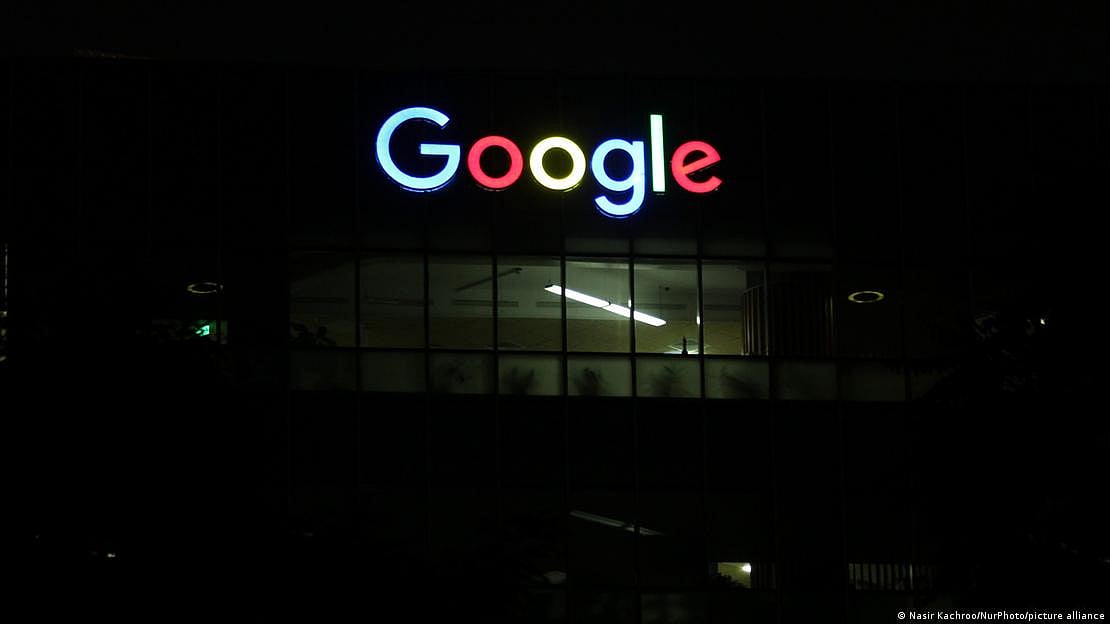Google accused of placing ads on sanctioned web pages
Piracy, porn and sanctioned websites — Google's search business is putting big brand names on questionable sites, a new study has revealed.

Google search ads of Fortune 500 companies and US government institutions have landed on websites with compromising content, including hardcore pornography and piracy sites, via a lesser-known part of Google's search ads business.
A 269-page study by the ad analytics firm Adalytics has exposed instances of alcoholic beverages advertised on children's websites, NSA recruitment postings on an Iranian government website, and donation solicitations for the US Republican Party on a Russian porn site. Well-known brands like BMW, Apple, Lego, Microsoft and government agencies were also affected.
The study sheds light on the lack of transparency in Google's search network, raising questions about how companies can protect their brand and prevent potential violations of US sanctions.
Brands unaware of ad placement on controversial sites
Advertisers have expressed concern that their ads were found on such sites and emphasized their stringent standards for ad placement. For example, the study found ads for BMW's new electric car models on the far-right news portal Breitbart News.

"We have initiated a thorough investigation to precisely determine how our advertising appeared in the context highlighted by you, and based on our findings, we will take any necessary additional measures," BMW said in response to a DW inquiry.
The report, titled "Does a lack of transparency create brand safety concerns for search advertisers?," calls out the lack of transparency in Google's search ads business, particularly within the less visible Google Search Partners network.
The Google Search Partners network, or GSP network, consists of third-party sites displaying Google search ads. Adalytics said it used open-source methods and public information to identify thousands of websites within the GSP network. The study reveals that the network placed ads on sites that advertisers would not have chosen knowingly, including porn sites, platforms with pirated content and politically extreme websites. Adalytics also found instances of GSPs hosting copyright-infringing content and engaging in deceptive tactics, in violation of Google's own publisher policies.
Ads on Iranian and Russian sites could violate US sanctions
The list of affected advertisers revealed concerning instances where major corporations, state authorities and NGOs may have violated US sanctions, possibly unintentionally. Adalytics cited examples such as the FBI, NSA and the French bank PNB Paribas appearing on websites of entities in countries like Russia and Iran, like the Tehran-based Iranian Alloy Steel Company, that may be under direct US sanctions.
Despite Google's publisher terms explicitly prohibiting ad placements in sanctioned countries, the findings suggest a lack of enforcement or oversight. This raises questions for advertisers about how companies might unknowingly contribute to potential sanctions violations through their digital advertising campaigns on Google's platform.

Google does not reveal third-party sites to brands
Advertisers running search ads on Google are opted into the GSP network by default, according to the report. Notably, Google does not provide a comprehensive list of third-party sites in its Search Partners network.
"Google Ads doesn't provide information detailing the website where your ad was shown on the search network," Google's own documentation states, according to the report. By creating a campaign for the search network, advertisers are acknowledging that Google's policies meet their company's image and reputation standards.
Responding to a DW inquiry, Google denied the allegations. "Adalytics has a track record of publishing inaccurate reports that misrepresent our products and make completely exaggerated claims," Dan Taylor, vice president of Google's global advertising business, said.
Nevertheless, the company will thoroughly examine the report. Based on the limited information available, Google asserts that no advertising revenue has been shared with sanctioned entities.
EU calls for tougher digital advertising rules
Google also communicated that Adalytics' data collection methods are inaccurate. Additionally, the company points out that it is in the interest of the for-profit analytics firms to sow distrust and then offer their own services.
Adalytics released a similar study in the summer, criticising the opaque advertising practices in YouTube's video advertising.
"The opaqueness of the current advertising market allows for such practices," Dutch EU Parliament member Paul Tang, who specializes in technology companies and had access to the Adalytics study, told DW.
He advocates for stricter legislation as Google continues to disavow any responsibility, which he deems "a shame." The EU recently championed stricter consumer rules for online giants like Amazon, Facebook and Google through the Digital Markets Act.
Edited by: Tim Rooks
Follow us on: Facebook, Twitter, Google News, Instagram
Join our official telegram channel (@nationalherald) and stay updated with the latest headlines
